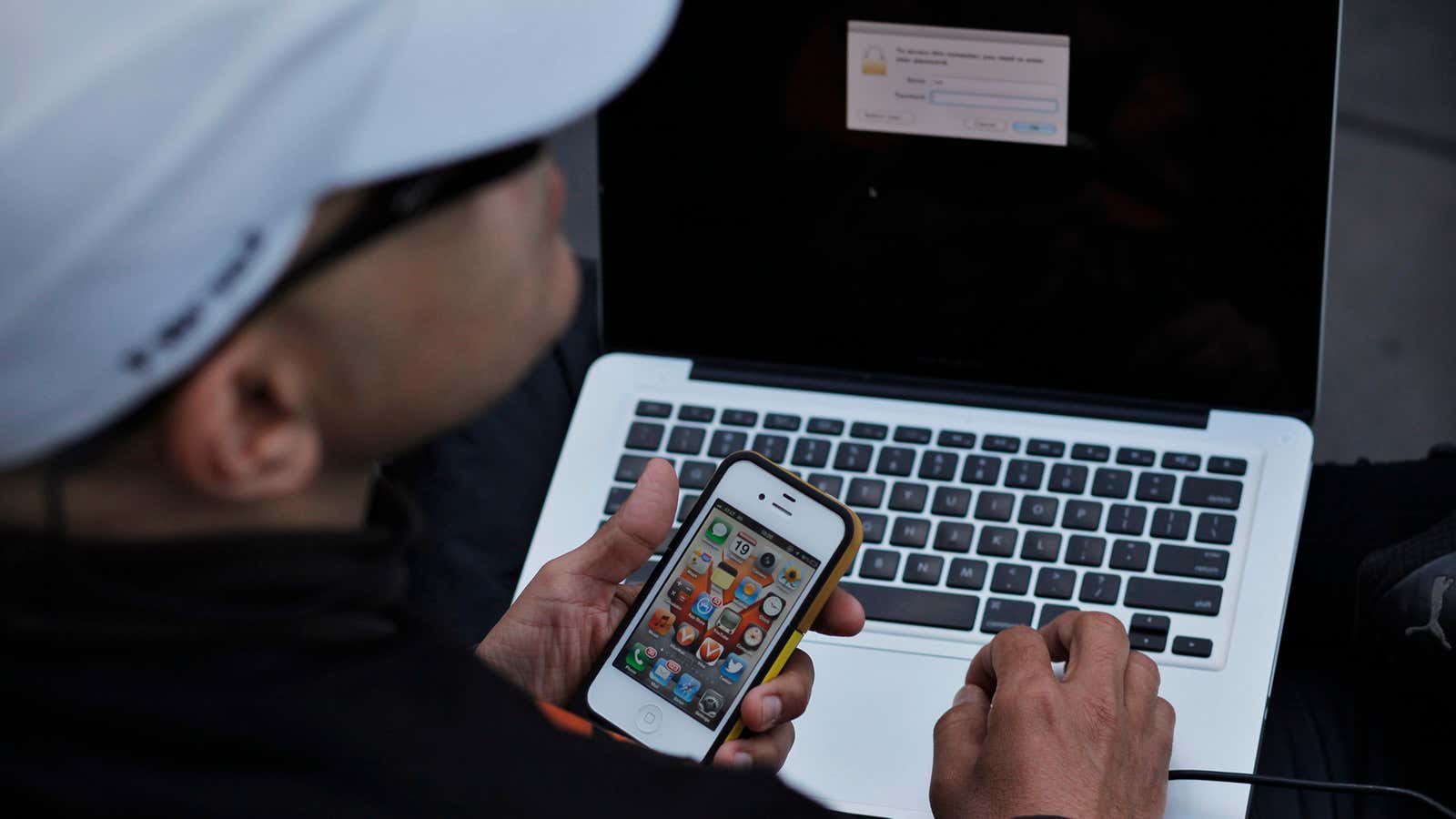Do you suffer from password fatigue? If you’re a human and you use the internet, the Agence France-Presse says, you probably do. Symptoms include picking “easy” passwords—those that shirk suggestions for long strings of characters mixing numbers and symbols—and repeating passwords from one website to another, a dangerous game if you’re mixing low- and high-security accounts.
“As people are increasingly accessing websites from smartphones and tablets, typing passwords is becoming an ever bigger pain,” Sarah Needham of Confident Technologies, developers of a picture-based password alternative, told AFP.
In fact, a 2012 report by cybersecurity company Norton found that, of 13,000 adults surveyed in 24 countries, 46% used simple passwords and failed to change them regularly.
But how important is it that we all improve our password habits? Yes, you should protect your personal information to the best of your ability—namely, with longer, more complex, and more unique passwords—but even the best passwords are ultimately crackable.
The hope is that new ways of protecting accounts will emerge on the market soon. Google, Twitter and others already offer easy two-step verification, which requires users to enter a unique numerical code sent to their phone in addition to a password. Google is also considering a ring with an embedded smart card that you would simply tap against your computer. Apple published a patent application in February for image-based authentication—users see a stored photo and have to identify who or what it shows—and the FIDO Alliance, a group that includes PayPal, is rolling out an open-source biometrics system that relies on fingerprint scanning. Most of these are likely to be used alongside passwords rather than replacing them, but having another layer of protection in place will mean the passwords can be simpler.
For now, the consensus is that internet users should bite the bullet and use even more complicated passwords—and as many of them as possible. But password fatigue is not long for this world. Soon we’ll have retina-scan fatigue instead.
